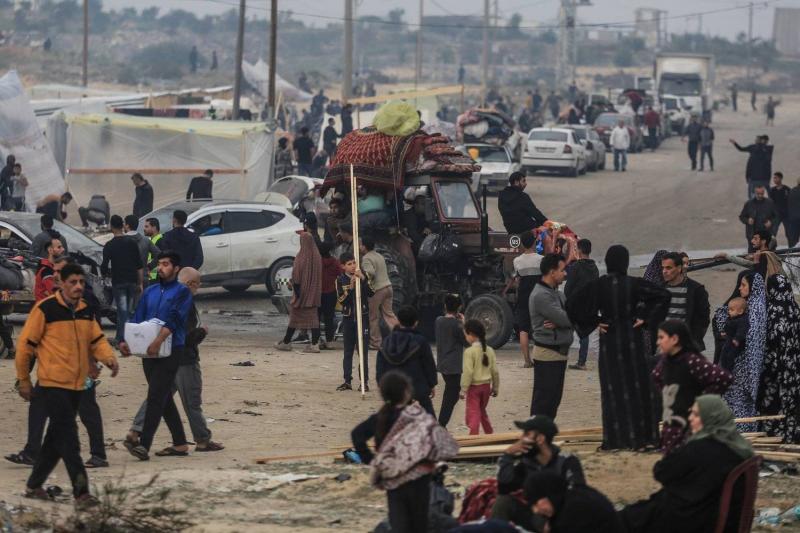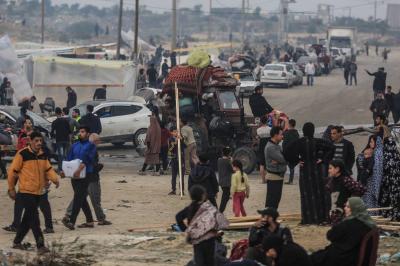A tent has been set up for the Abu Mustafa family in front of the high concrete and metal fence that separates the Gaza Strip from Egypt in Rafah, the last relatively safe place in the Palestinian territory devastated by the Israeli military attack, though it too may now be under threat. The Abu Mustafa family is among over a million Palestinians currently crowding the area around Rafah, fearing that there is nowhere left to escape within the small territory that has largely been reduced to rubble and remains embroiled in fierce fighting.
Israeli Prime Minister Benjamin Netanyahu has ordered the formulation of a plan to evacuate civilians gathered in Rafah, whether in tents on the streets, in empty areas, on the beach, or, like the Abu Mustafa family, on the sandy strip along the Egyptian border. Relief agencies state that any attack on the city would be catastrophic in a war that has already produced indescribable tragedies.
After four months, Gaza has turned into ruins. Under intense daily bombardment, Israeli ground forces are sweeping through most of the territory, crushing homes, public buildings, and infrastructure with airstrikes, artillery fire, and explosions. Palestinian health authorities report that over 28,000 individuals have been killed in the conflict, about 70 percent of whom are women and children. More than 85 percent of Gaza's population is now homeless. A United Nations survey concludes that nearly one in ten children under five years old is suffering from acute malnutrition.
Attempts to negotiate a ceasefire and the release of hostages have failed to reach an agreement thus far. Last week, Israel rejected a proposal from Hamas, stating that it would not cease fighting while Hamas retains brigades that Israel claims are sheltering in Rafah. Egyptian security sources indicated that higher-level talks are scheduled for Tuesday between Israeli and Palestinian delegations, attended by senior officials from Qatar and the United States.
Israeli airstrikes have recently begun targeting Rafah. Hamas reported today that the Israeli airstrikes in Gaza over the past four days have resulted in the deaths of two hostages and injuries to eight others. Hamas stated that any Israeli attack on Rafah would mean "blowing up" negotiations aimed at reaching an agreement regarding the release of remaining hostages.
In an interview slated to air on the American network "ABC" today, Netanyahu reiterated that Israeli forces would attack Rafah but stated they are preparing a "detailed plan" for where civilians can go. Netanyahu said, "We will do this. We will find the remaining terrorist Hamas brigades in Rafah." He added, "We will do this while providing a safe corridor for civilians."
A spokesperson for the French Foreign Ministry mentioned that "Any large-scale Israeli attack on Rafah will create a catastrophic situation with a new and unjust dimension." In front of the border fence topped with barbed wire, the Abu Mustafa family hangs their washed clothes between the tents and cooks the little food they can gather in empty tin cans over a fire on the sand. Mariam, a woman who fled her home in Gaza City early in the war with her three children, aged five, seven, and nine, said that the fear of an attack on Rafah is the main topic of conversation in the overcrowded city.




